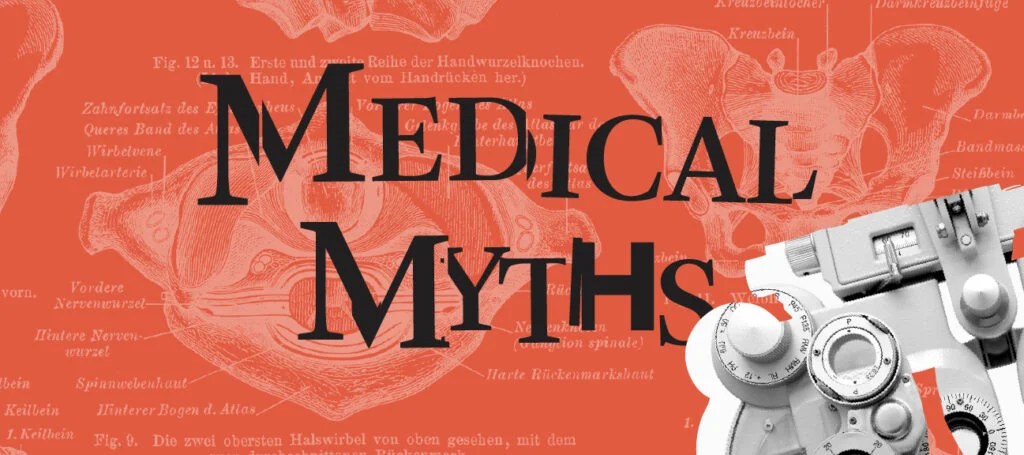目录
章鱼胺介导果蝇慢性应激诱导的抑郁样状态的糖缓解
<markdown>
*章鱼胺介导果蝇*慢性应激诱导的抑郁样状态的糖缓解
- 蒂姆·赫尔曼斯01117-4# “关于作者 Tim Hermanns 的通讯信息”)
- 索尼娅·格拉夫-博克斯霍恩01117-4# “关于作者 Sonja Graf-Boxhorn 的通讯信息”)
- 伯克哈德·波克01117-4# “关于作者 Burkhard Poeck 的通讯信息”)
发布时间:2022 年 7 月 31 日DOI:https ://doi.org/10.1016/j.cub.2022.07.016
**重点**
- 喂食糖或章鱼胺 (OA) 可以缓解果蝇的抑郁样状态
- 食道下神经节中的章鱼胺能 VUM 神经元发出甜味信号
- OA 介导的缓解通过多巴胺能 PAM 神经元向蘑菇体发出信号
- 5-羟色胺能 DPM 神经元向蘑菇体发出信号是缓解症状所必需的
**摘要**
在人类和哺乳动物疾病模型中,慢性、无法控制的压力会导致精神综合征,包括焦虑症和重度抑郁症。 ^101117-4#bib1)^ ^,201117-4#bib2)^ 同样,数天的慢性压力会导致果蝇与抑郁相关的行为改变,伴随大脑中生物胺水平的变化。 ^301117-4#)^ ^,^ ^401117-4#)^ ^,^ ^501117-4#)^ ^,^ ^601117-4#)^ 在我们的慢性压力范式中,苍蝇会经历 3 天的 300 Hz 振动重复阶段,同时过度拥挤和食物匮乏。这种治疗减少了自愿行为活动,包括攀登巨大差距(冒险)和停下来吃甜食(快感缺失)的动机,这表明存在抑郁样状态(DLS)。这些行为变化与减少血清素释放到蘑菇体 (MB) 相关,蘑菇体MB 是苍蝇中央大脑的主要行为控制中心。 ^701117-4#bib7)^ ^,801117-4#bib8)^ 通过喂食抗抑郁血清素前体 5-HTP 或选择性血清素再摄取抑制剂氟西汀,可以缓解 抑郁样状态DLS 压力的果蝇。值得注意的是,给压力很大的果蝇喂食蔗糖会导致大脑中血清素水平升高并改善 抑郁样状态DLS。 ^301117-4#bib3)^ 在这里,我们表明这种糖的缓解作用是由位于食管下神经节的腹侧未配对内侧神经元发出的神经递质章鱼胺介导的。甜味章鱼胺信号通过多巴胺能 PAM 神经元传递到 蘑菇体MB。此外,神经元沉默实验表明,支配 蘑菇体MB 的 5-羟色胺能背侧配对内侧 (DPM) 神经元对于缓解糖分至关重要。相反,DPM 的热遗传或光遗传激活可以取代甜味,阐明 DPM 的血清素信号参与正向调节 抑郁样状态DLS 相关的行为变化。
**图形概要**
**关键词**
Octopamine mediates sugar relief from a chronic-stress-induced depression-like state in *Drosophila*
https://www.cell.com/current-biology/fulltext/S0960-9822(22)01117-4
</markdown>
D:2022.10.11<markdown>
[膳食糖可以治疗慢性抑郁症](http://haidut.me/?p=1972)
这里不多评论,只需要指出抑郁症患者的糖“瘾”至少被医学公认50年,一直被视为抑郁症的合并症,同样需要治疗. 医生一直建议抑郁症患者抵制摄入糖分的冲动,警告说这种“暴食”会对患者的情绪和全身健康产生不利影响。这个研究不同意并再次证明(就像臭名昭著的老鼠公园实验 50 年前所做的那样)大多数“上瘾”行为只是一种绝望的自我药疗尝试。就糖而言,实际上是真正的治疗性药物,并且比现代医学向所有年龄段患者(甚至婴儿)提供的有毒 SSRI 药物(像糖果但不是糖)更安全。然而,大众媒体文章仍然告诫人们不要“暴食”,因为这可能对健康产生不利影响。俗话说——有些人永远学不会……在这种情况下不只是病人
</markdown>
D:2022.10.11<markdown>
**Medical myths: All about sugar**
In this episode of Medical Myths, we discuss some of the many misunderstandings surrounding one of the sweetest nutritional topics: sugar.
By Tim Newman on January 18, 2021 — Fact checked by Anna Guildford, Ph.D.
In our Medical Myths series, we approach medical misinformation head on. Using expert insight and peer reviewed research to wrestle fact from fiction, MNT brings clarity to the myth riddled world of health journalism.
Share on Pinterest
Today is the first day of Sugar Awareness Week. With this in mind, the Medical Myths truth wagon will take a cruise to Sugar Town via Misconception Lane.
Over the centuries, this crystalline sweetener has invaded everyone’s snacks, drinks, guts, and minds. It has caused its fair share of controversy, too.
Although everyone is familiar with sugar as a concept, we’ll start with a brief explainer.
**What is sugar?**
Sugar is a soluble carbohydrate — a biological molecule consisting of carbon, hydrogen, and oxygen atoms. Other carbohydrates include starch and cellulose, which is a structural component of plant cell walls.
Simple sugars, or monosaccharides, include glucose and fructose. Granulated sugar is a compound sugar, or disaccharide, known as sucrose, which consists of glucose and fructose. During digestion, the body breaks down disaccharides into monosaccharides.
Still, the chemistry of sugar does not explain its infamy. The substance gained its dastardly reputation because it tastes delicious and, if consumed too freely, is bad for our health.
**1. Sugar is addictive**
Some experts believe sugar is an addictive substance. For instance, the authors of a controversial narrative review in 2017 write:
> “Animal data has shown significant overlap between the consumption of added sugars and drug-like effects, including bingeing, craving, tolerance, withdrawal, cross-sensitization, cross-tolerance, cross-dependence, and reward and opioid effects.”
However, this review focuses on animal studies. As the authors of another review explain, “there is a methodological challenge in translating this work because humans rarely consume sugar in isolation.”
Dr. Dominic M. Dwyer from Cardiff University’s School of Psychology explains, “Although certainly present in some people, addiction-like behaviors toward sugar and other foods are present only in a minority of obese individuals. However, we should remember that sugar can drive the overconsumption of foods alongside its addiction-like potential.”
Along similar lines, Prof. David Nutt, Chair of the Independent Scientific Committee on Drugs and head of the Department of Neuropsychopharmacology and Molecular Imaging at Imperial College London, writes:
“There is not currently scientific evidence that sugar is addictive, although we know that sugar has psychological effects, including producing pleasure, and these are almost certainly mediated via brain reward systems.”
It is worth noting that even though health experts do not class sugar as an addictive substance, that does not make it healthful.
**2. Sugar makes kids hyperactive**
This is perhaps the most common myth associated with sugar: eating candy causes children to run wild. In fact, there is no scientific evidence that sugar increases hyperactivity in the vast majority of children.
For instance, a 1995 meta-analysis in JAMATrusted Source combined data from 23 experiments across 16 scientific papers. They concluded:
> “This meta-analysis of the reported studies to date found that sugar (mainly sucrose) does not affect the behavior or cognitive performance of children.”
However, people with children may doubt the truth of this conclusion. For those interested in reading more, we address this myth extensively in an earlier edition of Medical Myths.
**3. Sugar causes diabetes**
Another relatively common myth is that sugar directly causes diabetes. However, there is no direct link between the two. The confusion perhaps arises because there is an intrinsic association between blood sugar levels and diabetes.
The story is a little more complicated, though. Overweight and obesity are risk factors for type 2 diabetes, and consuming high levels of sugar does increase the likelihood of developing overweight or obesity. However, sugar is not the direct cause of type 2 diabetes.
As for type 1 diabetes, dietary and lifestyle factors do not play a part.
**4. Avoid fruit when dieting**
Fruits are delicious, partly because they are sweet, thanks to naturally occurring sugars. Because of their sugar content, some people believe that we should avoid eating fruit when maintaining a moderate weight.
This is a myth. Fruits contain a range of healthful compounds, including a variety of vitamins and minerals, and fiber.
Fruit consumption is associated with health benefits, including a reduced mortality rateTrusted Source.
One studyTrusted Source concluded that freeze-dried mango “does not negatively impact body weight but provides a positive effect on fasting blood glucose.” Another studyTrusted Source found that consuming blueberries enhanced insulin sensitivity.
However, it is worth noting that the two studies mentioned above received grants from the National Mango Board and the United States Highbush Blueberry Council, respectively.
Make of that what you will, but there is no doubt that consuming fruit benefits health. Removing it from our diet to reduce sugar intake would be a mistake.
**5. We must eliminate sugar from our diet**
Because we know consuming excess sugar is bad for health, it makes sense to reduce our intake. However, it is not necessary to remove it from our diet entirely.
As we noted above, fruits contain sugar, and they benefit health, so cutting it from our diet would be counter-productive.
As with everything in life, moderation is key. With that said, sweetened beverages, such as soda, have associations with several negative health consequences, including kidney damageTrusted Source, cellular aging, hip fracturesTrusted Source, obesity, type 2 diabetesTrusted Source, and moreTrusted Source.
Cutting soda from our diets would certainly not be a terrible idea.
**6. Sugar causes cancer**
Despite the rumors, most experts do not believe sugar directly causes cancer or fuels its spread.
Cancer cells divide rapidly, meaning they require a great deal of energy, which sugar can provide. This, perhaps, is the root of this myth.
However, all cells need sugar, and cancer cells also require other nutrients to survive, such as amino acids and fats, so it’s not all about sugar. According to Cancer Research UK:
> “There’s no evidence that following a sugar-free diet lowers the risk of getting cancer, or boosts the chances of surviving if you are diagnosed.”
As with diabetes, there is a twist — increased sugar intake has links with weight gain, while overweight and obesity are linked with increased cancer risk.
So, although sugar does not directly cause cancer and does not help it thrive, if someone consumes high levels of sugar and develops obesity, their risk increases.
Scientists are continuing to investigate the relationship between cancer and sugar intake. If there are links between the two, they are likely to be convoluted. For instance, the American Cancer SocietyTrusted Source write:
“There is […] evidence that a dietary pattern high in added sugars affects levels of insulin and related hormones in ways that may increase the risk of certain cancers.”
One studyTrusted Source, which included data from 101,279 participants, concluded that “[t]otal sugar intake was associated with higher overall cancer risk,” even after controlling for multiple factors, including weight.
Other researchers have found links between sugar intake and specific cancers, such as endometrial cancer and colon cancer. However, for now, the link is not as solid as the rumor mill claims.
**The take home**
Sugar is a much-researched topic. Typing “sugar health” into Google Scholar brings up more than 78,000 results from 2020 alone. Navigating this amount of content is unwieldy, and, as with any scientific topic, there are disagreements.
Something to bear in mind is that many studies investigating the health impacts of sugar receive funding from the food industry. One reviewTrusted Source of research into soft drink consumption, nutrition, and health examined the results of 88 relevant studies.
They found “clear associations” between soft drink intake, body weight, and medical issues.” Tellingly, they also report that “studies funded by the food industry reported significantly smaller effects than did non-industry-funded studies.”
Although there are a number of misunderstandings surrounding sugar, some things are certain: although it might not directly cause diabetes or cancer, eating high levels of sugar is not healthful. Moderation, I am afraid, is the solution.
https://www.medicalnewstoday.com/articles/medical-myths-all-about-sugar
</markdown>
D:2022.10.14
<markdown> </markdown>






